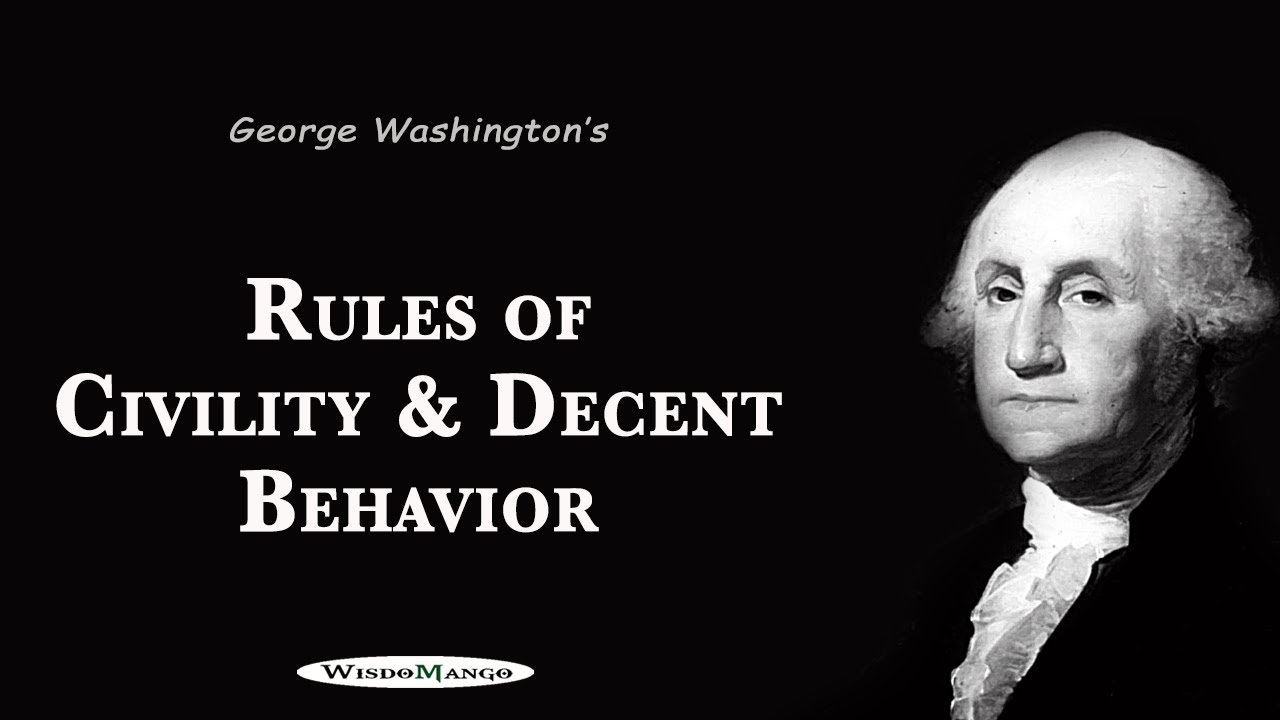In a world often marked by chaos and discord, the concept of civility serves as a beacon of light, guiding individuals through the complexities of social interaction. Rooted in timeless principles of respect, kindness, and empathy, the rules of civility form the bedrock of harmonious human relations. From ancient philosophical treatises to modern etiquette guides, the importance of cultivating civility has been emphasized across cultures and epochs. In this article, we delve into the essence of civility, exploring its significance, evolution, and practical application in contemporary society.
The Essence of Civility
At its core, civility encompasses a set of norms and behaviors that foster mutual respect and cooperation among individuals. It is the art of treating others with dignity, regardless of differences in opinion, background, or status. Derived from the Latin word “civilitas,” meaning “citizenship” or “civil society,” civility underscores the notion of collective responsibility in upholding societal harmony.
Central to the concept of civility is the recognition of each person’s inherent worth and the acknowledgment of their rights and perspectives. Whether in public discourse, interpersonal relationships, or professional settings, civility cultivates an environment where dialogue flourishes, conflicts are resolved constructively, and communities thrive.
Evolution of Civility
The roots of civility can be traced back to ancient civilizations such as Greece, Rome, and China, where philosophers and sages expounded upon the virtues of moral conduct and social decorum. In Western tradition, the Renaissance period witnessed a revival of interest in classical learning, leading to the emergence of courtesy literature that prescribed guidelines for polite behavior.
During the Enlightenment era, thinkers like Immanuel Kant and John Locke further elaborated on the principles of civility, emphasizing the importance of rational discourse and the social contract in maintaining civil society. In the 18th and 19th centuries, etiquette manuals proliferated, reflecting the evolving norms of polite society in the burgeoning urban centers of Europe and America.
In the modern era, the rise of globalization and technological advancements has brought new challenges and opportunities to the practice of civility. While the digital age has facilitated instant communication and connectivity, it has also given rise to incivility in online spaces, where anonymity and distance often erode social norms.
Principles of Civility
The rules of civility are not rigid dictates but rather guiding principles that adapt to the changing dynamics of human interaction. Among the fundamental tenets of civility are:
- Respect for Diversity: Embrace the richness of human diversity and treat others with dignity and tolerance, regardless of differences in race, ethnicity, gender, religion, or ideology.
- Empathy and Compassion: Cultivate empathy by seeking to understand the perspectives and experiences of others, and demonstrate compassion in times of hardship or adversity.
- Active Listening: Practice active listening by giving your full attention to others, refraining from interrupting, and seeking clarification to ensure mutual understanding.
- Courtesy and Politeness: Display courtesy and politeness in your interactions, through simple gestures such as saying “please” and “thank you,” and showing consideration for others’ feelings and preferences.
- Conflict Resolution: Approach conflicts with a spirit of diplomacy and openness to dialogue, seeking common ground and mutually acceptable solutions rather than resorting to hostility or aggression.
- Integrity and Honesty: Uphold principles of integrity and honesty in your words and actions, maintaining transparency and accountability in your dealings with others.
- Digital Etiquette: Extend the principles of civility to online interactions, refraining from cyberbullying, harassment, or spreading misinformation, and fostering a culture of respectful discourse in virtual communities.
Practical Application
Incorporating the rules of civility into everyday life requires mindfulness and intentionality. Here are some practical tips for cultivating civility in various contexts:
- In the Workplace: Foster a culture of respect and collaboration by acknowledging the contributions of colleagues, actively listening to their ideas, and offering constructive feedback in a professional manner.
- In Social Settings: Practice good manners and etiquette when attending social gatherings or events, by greeting others warmly, engaging in polite conversation, and showing genuine interest in their interests and experiences.
- In Public Discourse: Engage in civil discourse by expressing your opinions respectfully, listening to opposing viewpoints with an open mind, and refraining from personal attacks or derogatory language.
- In the Digital Sphere: Exercise caution and discretion when communicating online, being mindful of the tone and impact of your words, and refraining from engaging in inflammatory or divisive behavior.
By embracing the rules of civility in our interactions, we contribute to the cultivation of a more inclusive, compassionate, and harmonious society. As we navigate the complexities of the modern world, let us uphold the timeless virtues of respect, kindness, and empathy, and strive to be ambassadors of civility in all our dealings with others.
Conclusion
The rules of civility serve as a guidepost for navigating the intricacies of human interaction, fostering mutual respect, understanding, and cooperation. In a world often marked by discord and division, civility offers a pathway to building bridges, resolving conflicts, and fostering a sense of belonging and community. As we strive to uphold these principles in our daily lives, we contribute to the creation of a more compassionate, inclusive, and harmonious society for all.

